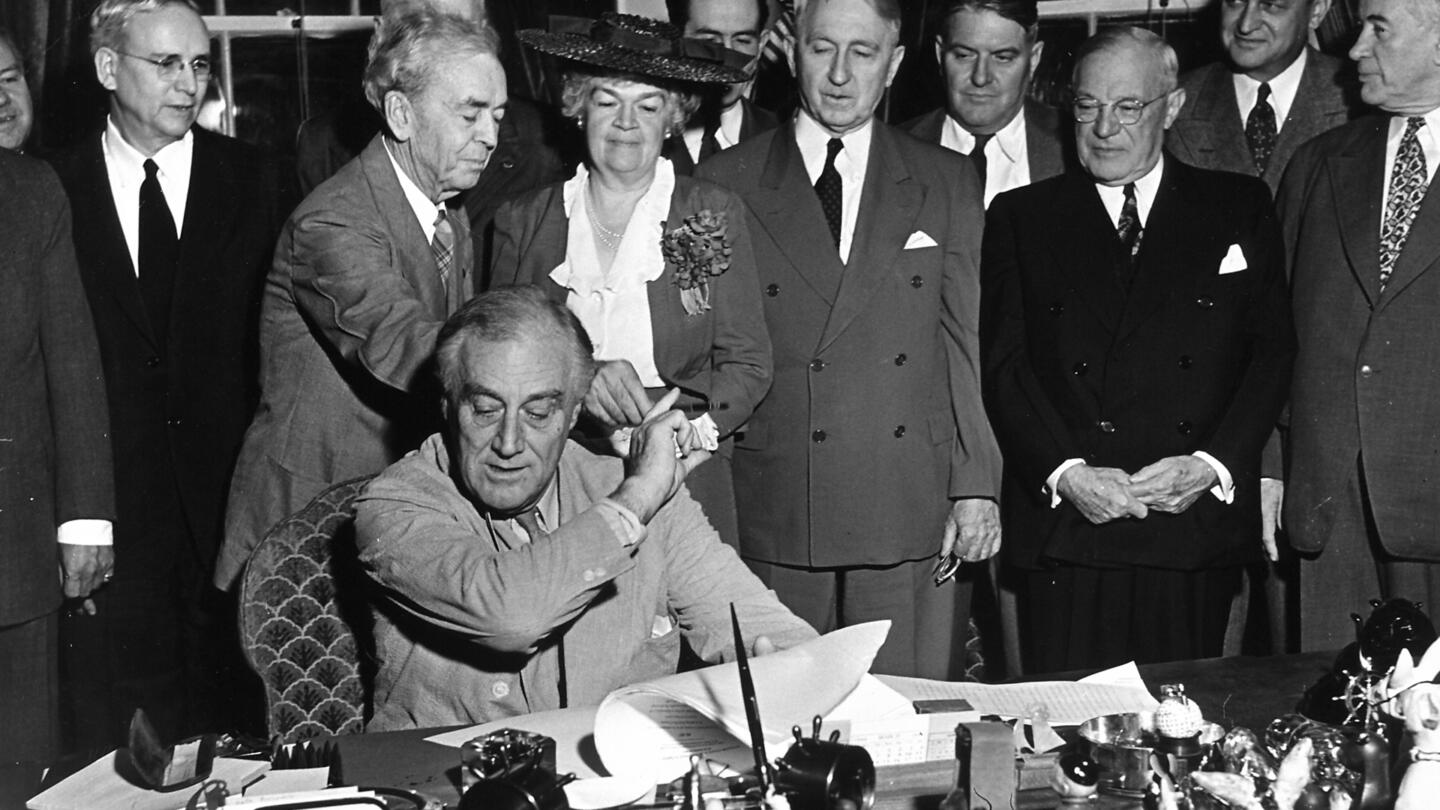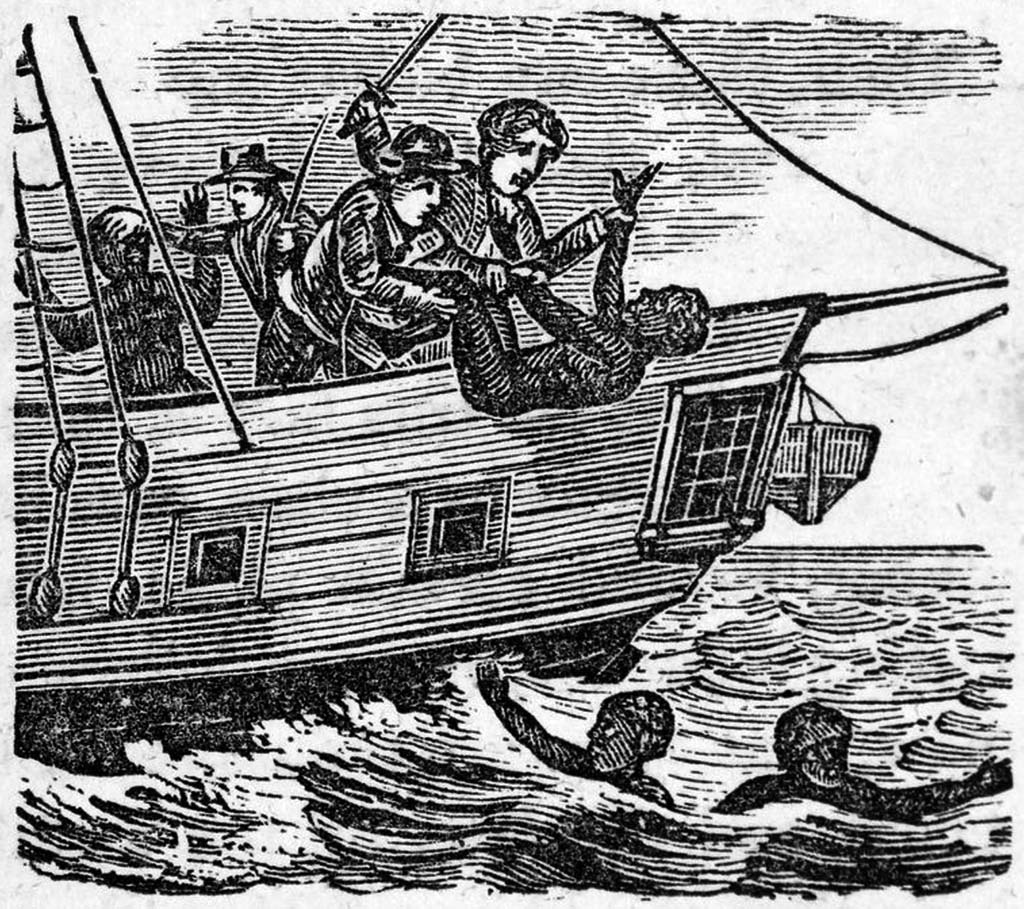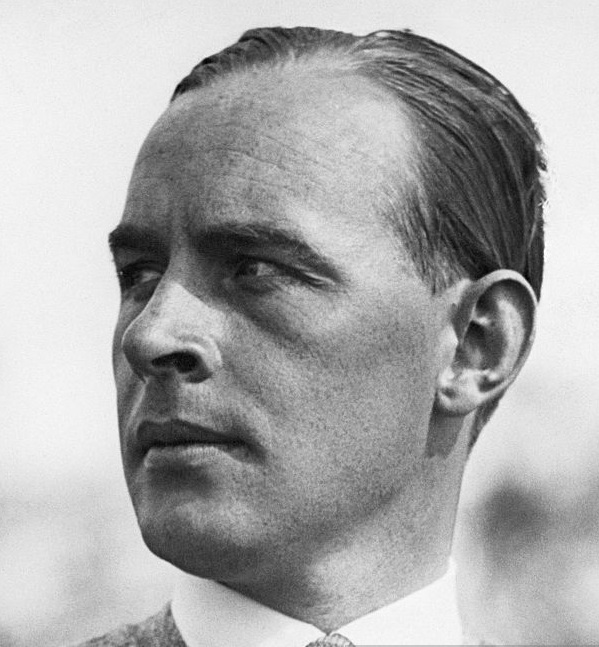
FDR signs G.I. Bill
On June 22, 1944, U.S. President Franklin D. Roosevelt signs the G.I. Bill, an unprecedented act of legislation designed to compensate returning members of the armed services–known as G.I.s–for their efforts in World War II.
As the last of its sweeping New Deal reforms, Roosevelt’s administration created the G.I. Bill–officially the Servicemen’s Readjustment Act of 1944–hoping to avoid a relapse into the Great Depression after the war ended. FDR particularly wanted to prevent a repeat of the Bonus March of 1932, when 20,000 unemployed veterans and their families flocked in protest to Washington. The American Legion, a veteran’s organization, successfully fought for many of the provisions included in the bill, which gave returning servicemen access to unemployment compensation, low-interest home and business loans, and–most importantly–funding for education.
By giving veterans money for tuition, living expenses, books, supplies and equipment, the G.I. Bill effectively transformed higher education in America. Before the war, college had been an option for only 10-15 percent of young Americans, and university campuses had become known as a haven for the most privileged classes. By 1947, in contrast, vets made up half of the nation’s college enrollment; three years later, nearly 500,000 Americans graduated from college, compared with 160,000 in 1939.
As educational institutions opened their doors to this diverse new group of students, overcrowded classrooms and residences prompted widespread improvement and expansion of university facilities and teaching staffs. An array of new vocational courses were developed across the country, including advanced training in education, agriculture, commerce, mining and fishing–skills that had previously been taught only informally.
The G.I. Bill became one of the major forces that drove an economic expansion in America that lasted 30 years after World War II. Only 20 percent of the money set aside for unemployment compensation under the bill was given out, as most veterans found jobs or pursued higher education. Low interest home loans enabled millions of American families to move out of urban centers and buy or build homes outside the city, changing the face of the suburbs.
Over 50 years, the impact of the G.I. Bill was enormous, with 20 million veterans and dependents using the education benefits and 14 million home loans guaranteed, for a total federal investment of $67 billion. Among the millions of Americans who have taken advantage of the bill are former Presidents George H.W. Bush and Gerald Ford, former Vice President Al Gore and entertainers Johnny Cash, Ed McMahon, Paul Newman and Clint Eastwood.

SLAVERY
1783
Zong slave ship trial
Hearing arguments in the case of the Zong, a slave ship, the Chief Justice of the King’s Bench in London states that a massacre of African slaves “was the same as if Horses had been thrown over board” on June 22, 1783. The crew of the Zong had thrown at least 142 captive Africans into the sea.

CRIME
2011
Notorious Boston mobster Whitey Bulger is arrested
On June 22, 2011, after 16 years on the run from law enforcement, James “Whitey” Bulger, a violent Boston mob boss wanted for 19 murders, is arrested in Santa Monica, California. The 81-year-old Bulger, one of the FBI’s “Ten Most Wanted” fugitives.

WORLD WAR II
1945
Battle of Okinawa ends
During World War II, the U.S. 10th Army overcomes the last major pockets of Japanese resistance on Okinawa Island, ending one of the bloodiest battles of World War II. The same day, Japanese Lieutenant General Mitsuru Ushijima, the commander of Okinawa’s defense, committed suicide.

1941
Germany launches Operation Barbarossa—the invasion of Russia
On June 22, 1941, over 3 million German troops invade Russia in three parallel offensives, in what is the most powerful invasion force in history. Nineteen panzer divisions, 3,000 tanks, 2,500 aircraft, and 7,000 artillery pieces pour across a thousand-mile front as Hitler goes ...read more

ART, LITERATURE, AND FILM HISTORY
1950
Bernstein, Copland, Seeger and others are named as Communists
The Red Scare of the 1940s and 1950s famously ended the careers of numerous film-industry professionals and forced others to avoid blacklisting by repudiating their political beliefs and “naming names” of suspected Communist sympathizers to the House Committee on Un-Activities.

CIVIL WAR
1864
General Lee strikes back at Petersburg
On June 22, 1864, Union forces attempt to capture a railroad that had been supplying Petersburg, Virginia, from the south, and extend their lines to the Appomattox River. The Confederates thwarted the attempt, and the two sides settled into trenches for a nine-month siege.

ART, LITERATURE, AND FILM HISTORY
2001
Blockbuster hit movie “The Fast and the Furious” released
On June 22, 2001, “The Fast and the Furious,” a crime drama based in the underground world of street racing in Southern California, debuts in theaters across the United States. In the film, directed by Rob Cohen, Paul Walker starred as Brian O’Connor, an undercover cop.
AMERICAN REVOLUTION
1775
Congress issues Continental currency
On June 22, 1775, Congress issues $2 million in bills of credit. By the spring of 1775, colonial leaders, concerned by British martial law in Boston and increasing constraints on trade, had led their forces in battle against the crown.

WORLD WAR I
1898
Author Erich Maria Remarque born
On June 22, 1898, Erich Maria Remarque, the author of the great World War I novel All Quiet on the Western Front, is born in Osnabruck, Germany. A student at the University of Munster, Remarque was drafted into the German army at the age of 18.
Comments
Post a Comment